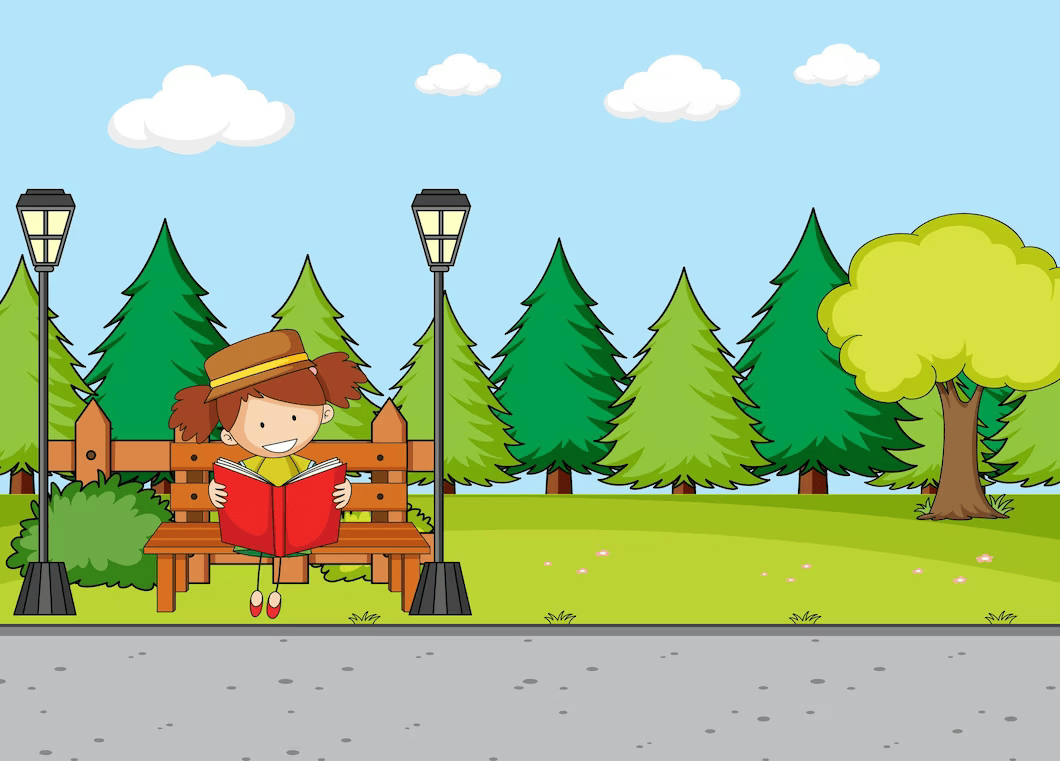
Simple past and simple Continuous.
Simple Past Tense:
The simple past is used to describe completed actions or states in the past.
Example:
| 🔊 | I went to the park yesterday. |
| 🔊 | She studied English for two hours. |
Forming the Simple Past Tense:
For regular verbs, add "-ed" to the base form of the verb.
Example:
"play" becomes "played," "walk" becomes "walked."
However, irregular verbs have unique past tense forms that need to be memorized.
Example:
"go" becomes "went," "eat" becomes "ate."
Time Expressions with the Simple Past:
Time expressions such as "yesterday," "last week," or "two days ago" are commonly used with the simple past.
Example:
| 🔊 | I met her last night. |
| 🔊 | They traveled to Europe last summer. |
Simple Past for Past Habits or States:
The simple past can also be used to describe habitual actions or states that occurred in the past.
Example:
| 🔊 | I always went for a run in the morning. |
| 🔊 | She used to live in London. |
The past continuous tense
Also known as the past progressive tense, is used to describe ongoing actions or events that were happening in the past at a specific moment or during a specific period of time. It helps us paint a picture of what was happening in the past, providing a sense of duration and setting the scene.
Forming the past continuous tense:
To form the past continuous tense, we use the past tense of the verb "to be" (was/were) and add the present participle form of the main verb (-ing).
Affirmative sentences:
In affirmative sentences, we use the following structure:
Subject + was/were + verb-ing
Examples:
| 🔊 | I was studying all night for the exam. |
| 🔊 | They were playing football in the park. |
| 🔊 | She was cooking dinner when the phone rang. |
Negative sentences:
In negative sentences, we add "not" after "was" or "were":
Subject + was/were + not + verb-ing
Examples:
| 🔊 | He wasn't watching TV when I arrived. |
| 🔊 | We weren't working on the project together. |
| 🔊 | They weren't attending the conference last week. |
Interrogative sentences:
In interrogative sentences, we invert the subject and "was" or "were":
Was/Were + subject + verb-ing?
Examples:
| 🔊 | Were you sleeping when the storm started? |
| 🔊 | Was he playing the guitar at the party? |
| 🔊 | Were they talking about their vacation plans? |
Using the past continuous tense
Ongoing actions in the past: We use the past continuous tense to describe actions or events that were happening at a specific time or during a specific period in the past.
Example:
| 🔊 | I was studying when the phone rang. |
Setting the scene: The past continuous tense helps set the scene by describing what was happening in the background or providing context for other past actions.
Example:
| 🔊 | The sun was setting, and birds were singing in the trees. |
Simultaneous actions: We use the past continuous tense to describe two or more actions happening at the same time in the past.
Example:
| 🔊 | While I was cooking, he was cleaning the house. |
Interruptions: The past continuous tense is useful for describing actions that were interrupted by another event or action in the past.
Example:
| 🔊 | She was watching TV when the power went out. |
It's important to note that the past continuous tense is not used for actions that happened at a specific point in the past or for habitual actions. For those situations, we use the simple past tense.
Activity
Simple past and simple Continuous:
1. Choose the correct verb tense to complete the sentence:
-Last night, I ___________ a movie with my friends.
-Which sentence uses the past continuous tense correctly?
Fill in the blank with the correct verb form:
-My sister ________ her favorite song yesterday.
-Identify the sentence that uses the simple past tense:
2. Complete the sentences with the correct verbal tense.
-Yesterday, while I (walk) in the park, I (see) a beautiful rainbow in the sky.
-Last night, I (watch) a movie with my friends when suddenly the power (go) out.
-When I (arrive) at the party, everyone (dance) and (have) a great time.
-Yesterday morning, I (read) a book in the garden while the birds (sing) .